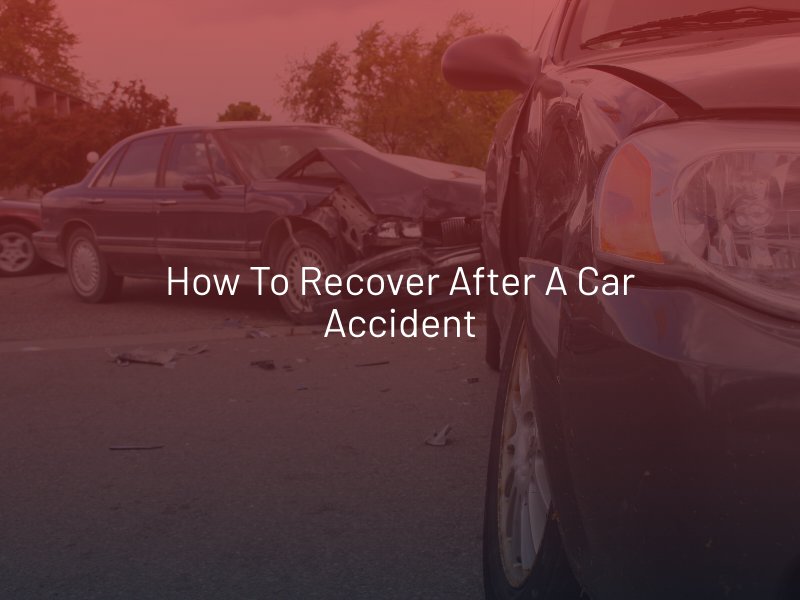How to Recover After a Car Accident
A car accident can be a traumatic and life-altering event. Beyond the physical injuries, it can have a significant impact on your mental and emotional well-being. While the recovery process may vary depending on the collision and injury severity, here are a few essential steps you can take to help you heal and regain control of your life.

Seek Medical Attention
The first and most crucial step after a car accident is to seek immediate medical attention, even if you think your injuries are minor. Some injuries may not manifest symptoms immediately, and a medical professional will assess your condition accurately.
Follow Your Treatment Plan
It is essential to follow your doctor’s prescribed treatment plan diligently. Attend all follow-up appointments, take prescribed medications, and complete any recommended physical therapy sessions. Consistency and adherence to your treatment plan are crucial.
Rest and Allow Your Body to Heal
Adopt a healthy lifestyle by eating nutritious meals and getting enough rest. Physical healing requires a lot of downtime. Avoid overexertion by listening to your body’s signals, and try not to rush the recovery process. Pushing yourself too hard can exacerbate your injuries.
If the accident was severe, consider hiring a car accident attorney to process the car accident claim while you focus on healing.
Gradually Resume Physical Activities
As you start feeling better, gradually reintroduce physical activities into your routine. Begin with gentle exercises or activities that your doctor approves. It could be as simple as taking short walks or doing light stretches. Slowly increase the intensity and duration of your workouts as your body grows stronger. However, always get approval from your medical provider before resuming any strenuous exercises or activities.
Seek Emotional Support
A car accident can leave emotional scars that may impact your mental well-being. It is essential to acknowledge and address your feelings. Seek support from friends and family who can help you navigate the emotional aftermath of the accident. Talking about your experiences and emotions can provide a sense of relief and aid in your mental recovery.
Practice Self-Care
Engaging in self-care activities that bring you joy and relaxation is vital for your mental well-being. This could include practicing meditation, deep breathing exercises, engaging in hobbies, spending time in nature, or journaling your thoughts and feelings. Prioritizing self-care will promote emotional healing and reduce stress and anxiety.
Consider Professional Help
If you find it challenging to cope with the psychological effects of the accident, don’t hesitate to seek professional help. A therapist or counselor can provide you with the tools and support needed to address any depression, anxiety, or post-traumatic stress disorder (PTSD) symptoms you may be experiencing. Seeking help is a sign of strength, and it can significantly contribute to your overall recovery.
After recovering from a car accident, it is critical to prioritize your safety on the road. Follow traffic rules, avoid distractions while driving, and maintain your vehicle regularly. If the collision was particularly traumatic, consider enrolling in defensive driving courses or support groups to increase your confidence and reduce anxiety associated with driving. With the right support and perseverance, you can overcome the challenges and move forward towards a healthier, happier life.